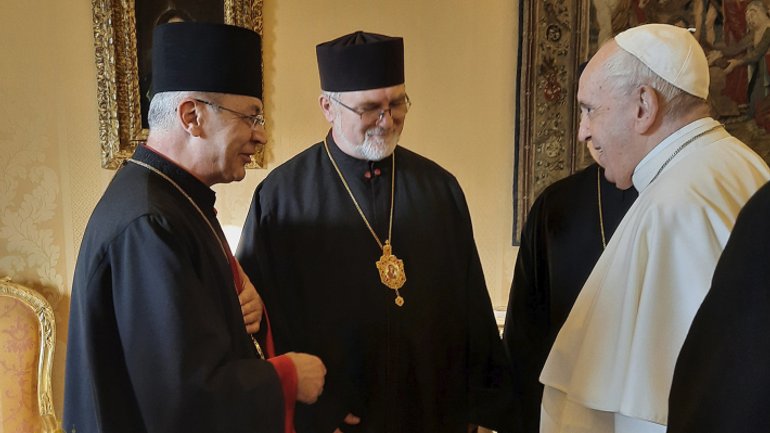Bishops of the Przemysl-Warsaw Archdiocese of the UGCC met with the Pope during the "ad limina Apostolorum" visit

Thus, the meeting with the Pope was attended by Archbishop-Metropolitan Yevhen Popovych, Bishop Volodymyr Yushchak, eparch of Wroclaw-Koszalinsky and Arkady Trokhanovsky, eparch of Olsztyn-Gdansk. This is reported by the UGCC Information Department.
Speaking about his participation in the ad limina Apostolorum visit, Bishop Volodymyr Yushchak drew attention to the fact that for the first time UGCC bishops from Poland came to this visit, representing the new structure of the archdiocese after the new diocese was created in November last year.
He stressed that Greek Catholic bishops are not passive observers, but active participants in all meetings that are held as part of visits to various departments, offering their special contribution that the Eastern Church can make.
Metropolitan Yevhen Popovych noted that during his visit to the Dicastery responsible for the pastoral care of the family, in the context of discussing the family crisis that modern society is experiencing, the experience of priestly families who give their important testimony was presented. If we are talking about a congregation in the affairs of the clergy, then in the context of the difficulties that priests are experiencing today, lack of vocations, etc., there was an opportunity to recall the layer of challenges that married clergy face in Eastern Churches.
As the head of the Metropolia of the Ukrainian-Byzantine rite in Poland noted, preliminary agreements have been reached in resolving some practical issues. For example, the creation of an inter-Archdiocese ecclesiastical tribunal and the inclusion of a representative from the archdiocese in a commission that considers various issues in the field of church-state relations.









